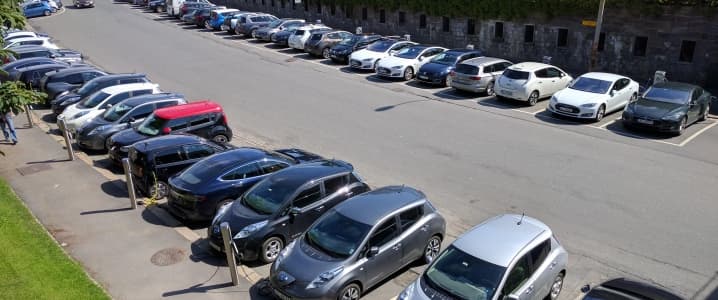If one listens to statements from carmakers with ambitious EV plans, one’s left with the impression that the world is in for a true automotive revolution and that those of us in their middle age right now will actually live to see a world with an almost entirely electric fleet. Alas, carmakers with ambitious EV plans have a vested interest in making such statements. Reality, as usual, tends to be different, and now these ambitious plans are facing a challenge: battery recycling costs.
Battery recycling has been garnering increasing media attention precisely because of the ambitious plans of international carmakers who are promising dozens of new EV models within a few years, and eyeing millions—even tens of millions—in sales. Yet these millions in sales are contingent on several factors, among them price parity with ICE cars. The issue of battery recycling could compromise this price parity.
Last month, a senior VP for Volkswagen told Automotive News, "We strongly believe that the tipping point is near, and that tipping point will be price equity." Reinhard Fischer admitted that problems remain besides price equity, but said time and exposure to EVs would take care of these. Unfortunately, the tipping point may turn out to be further than the VW executive believes.
According to BloombergNEF, the surge in EV production would greatly increase the demand for battery raw materials. In the case of cobalt, demand will considerably exceed the current mined production. This trend naturally brings recycling to the fore as an alternative to mining new raw materials. However, recycling comes at a cost, too. It is this cost of recycling that could mess up carmakers price parity plans and that’s because for some minerals, it might become not an alternative to mining but a necessary substitute to it. Related: Iran Offers EU Two Options To Keep Nuclear Deal In Place
“At some point it won’t make sense anymore to dig for raw materials, because enough batteries are available,” the managing director of a German battery recycling plant, Christian Hanisch, told Bloomberg recently. The problem, Bloomberg notes, is that the value of the minerals extracted through the recycling process does not cover the cost of the process itself. This means that the selling price of an EV would have to include the cost of recycling its battery. Batteries are already the most expensive component of electric cars, and automakers are actively seeking ways to reduce battery costs. Instead, they are now facing more costs.
The average lifespan of an EV battery is about eight years or 100,000 miles. VW alone has plans to churn out 22 million EVs by 2028. By next year, in China alone there will be 5 million EVs on the road, according to government plans. This number should increase in the next few years. By 2030, Glencore expects the global fleet to feature some 140 million EVs. That’s 140 million batteries for recycling in less than two decades.
The mining industry has been cautious with investments in the past few years, for reasons similar to those driving a stricter cost discipline in oil and gas. This means that recycling could become the only source for part of the additional 3 million tons of copper annually that rising EV production will demand, not to mention the other metals and minerals used in EVs. Since recycling is more expensive than mining, costs will go up as well. These higher costs could disrupt the vision of an all-electric future of transportation.
“What still needs to percolate through to the industry and consumers is that the end of life, whatever it is, will come at a cost, and that has to be incorporated into the selling price,” the CEO of Belgian chemicals producer Umicore, Marc Grynberg, told Bloomberg. “There’s a fee to be paid.”
By Irina Slav for Oilprice.com
More Top Reads From Oilprice.com:
- Busting The Myth Of The World’s Hottest Electric Car Market
- Why Saudi Arabia Split Up Its Energy Ministry
- China Eyes Stake In Southeast Asia’s Newest Oil Frontier


















You wrote: "This means that the selling price of an EV would have to include the cost of recycling its battery". Seriously? Does that mean we will start including the price of 'recycling' the CO2 that results from driving a car or heating homes or making cement? Does this mean we will start including the cost to dismantle nuclear power stations and safely, for thousands of years with no risk of failure, dispose of their wastes?
There are plenty of uses for tired EV batteries after they have done their job of bringing miles to you from multiple domestic sources in a vehicle that has only a dozen moving parts. Oh, and paying 2 cents per mile, less in hydro-rich Seattle and Oslo, v 10 cents and more from a single source is a pretty good idea too. Sort of like gravity.
Your article doesn't really add up. Recycling could well solve the problem of sourcing currently scarce materials. But it's a market, and if production of required minerals is cheaper digging them out of the ground than recycling, that's what will happen (absent some government regulations that bend the market). So what?